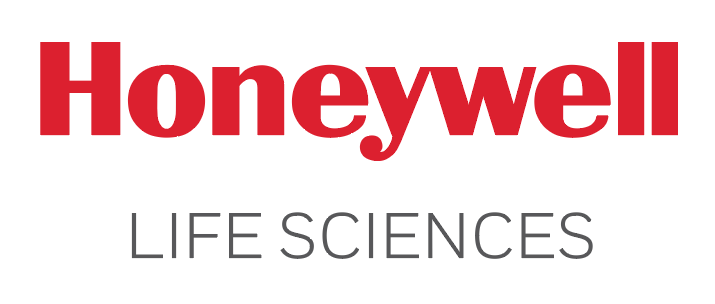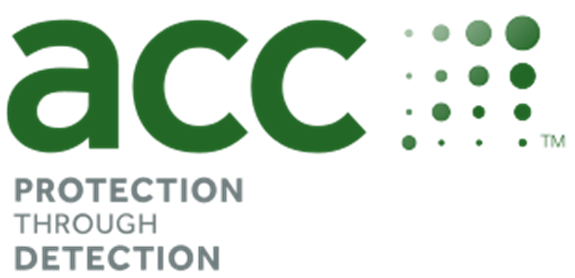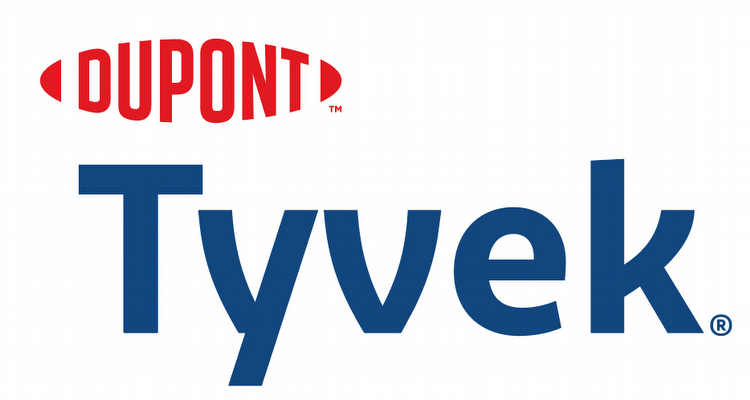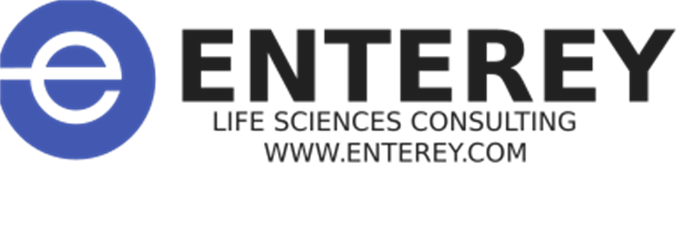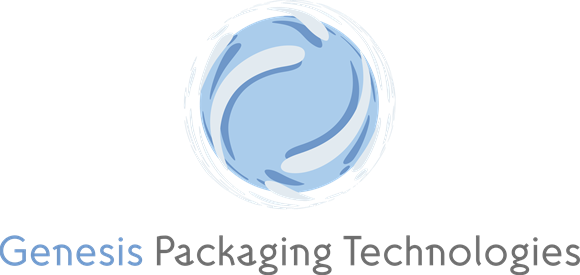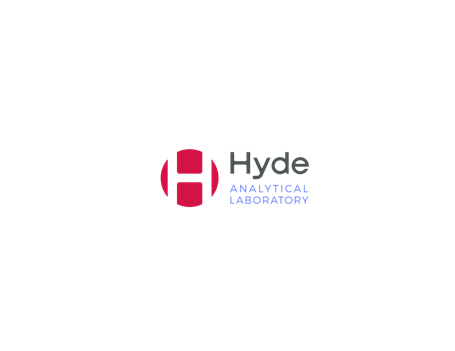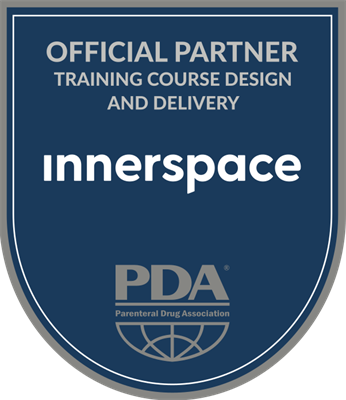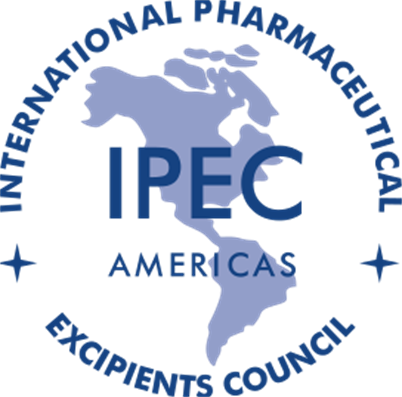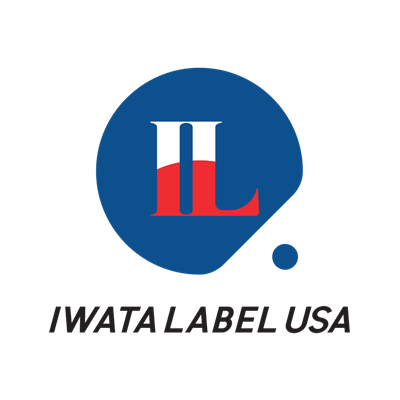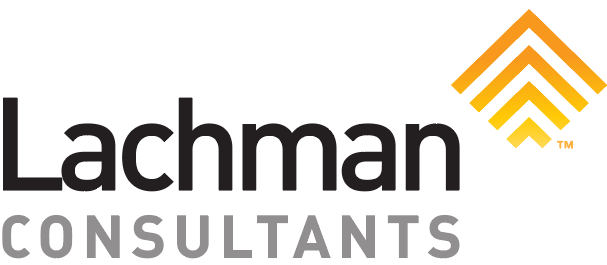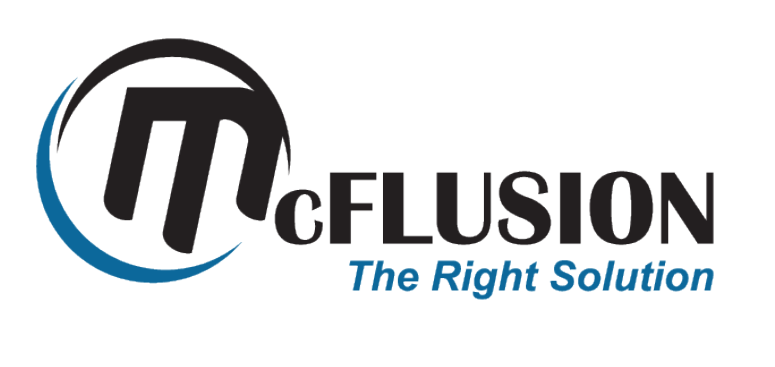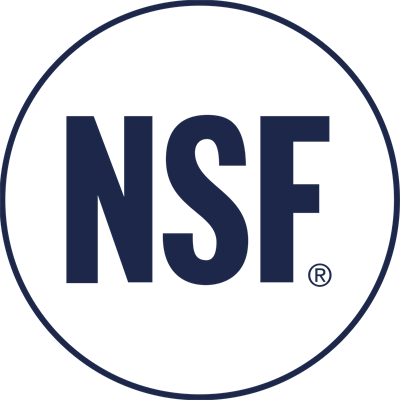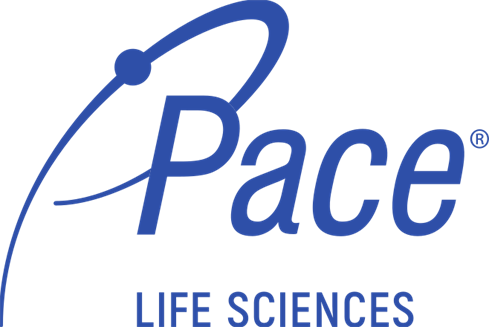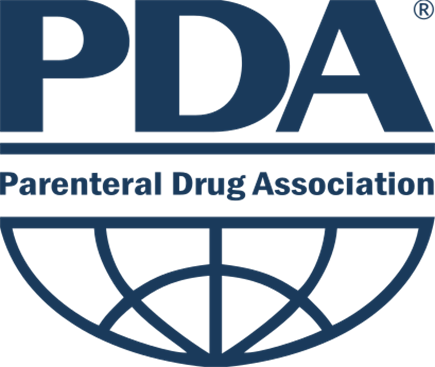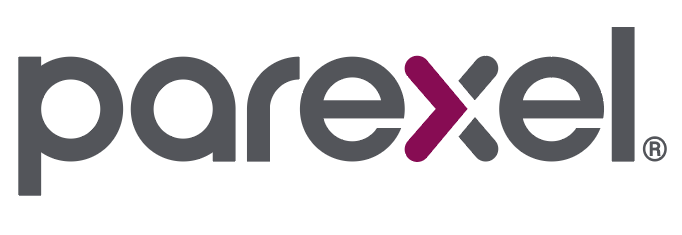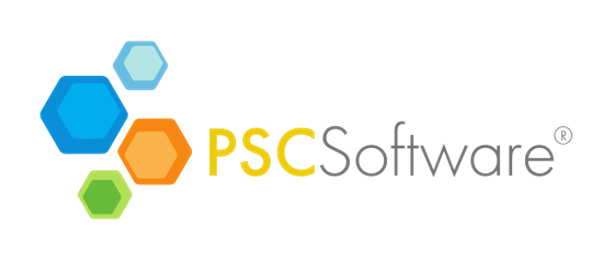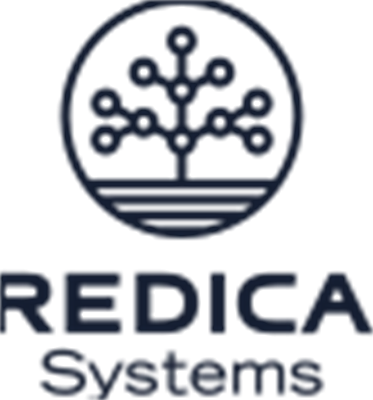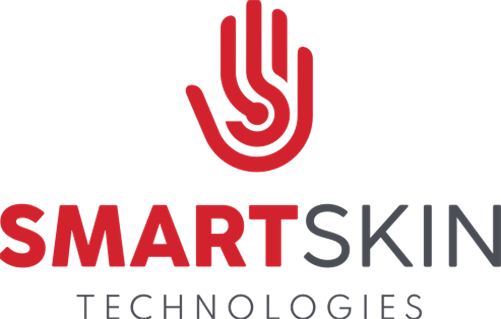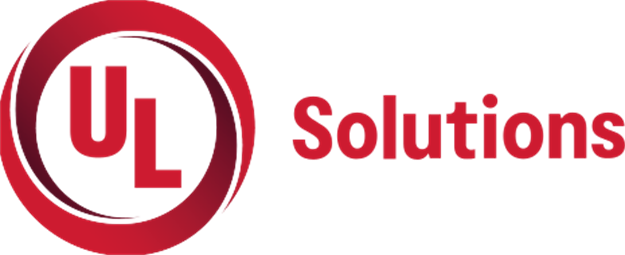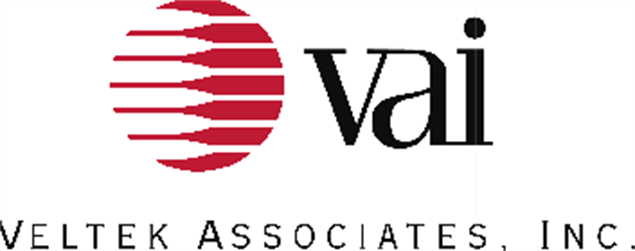
PDA Regulatory Conference 2025 - Archived
Achieving CGMP Excellence: Sustainable Compliance Across the Lifecycle
Networking Opportunities | Exhibit Area | Hot Topic Roundtable
Interest Groups | Educational Sessions | Training Courses and Workshops
Become a Sponsor and/or Exhibitor
Registration Options
Individual Registration
Livestream Registration
Group Registration
Missed the most recent action? Catch up now!
Explore highlights, key moments, and insights from our recent event. Dive into the recap and stay informed!
View Event RecapThe Industry's Most Trusted CGMP Conference—Now Available Via Livestream
Whether you join us in Washington, DC or virtually from anywhere in the world, the PDA Regulatory Conference 2025 delivers the same trusted content. Gain actionable insights through focused sessions, real-world case studies, and the latest updates from U.S. FDA regulators–all designed to help you apply Current Good Manufacturing Practice (CGMP) principles with confidence and precision.
Livestream participants benefit from:
- Live access to all plenary and concurrent sessions
- Interactive Q&A with FDA leaders and industry experts
- Comprehensive coverage of regulatory trends, compliance strategies, and FDA priorities
- On-demand session recordings to revisit key insights at your convenience
Returning to Washington, DC for the 34th year, PDA's September regulatory conference remains the pharmaceutical industry’s most trusted forum for open, informed dialogue between global regulators and industry professionals. For more than three decades, this event has provided the insights needed to strengthen compliance, advance quality systems, and protect patients worldwide.
The PDA Regulatory Conference 2025 agenda builds on this legacy with a strong focus on advancing effective quality systems across the product lifecycle, with U.S. FDA participation woven throughout. Sessions will spotlight critical CGMP pillars—including quality systems, facility and process design, supplier oversight, industrial modernization, and quality risk management. Real-world case studies, many shaped by regulator perspectives, will demonstrate how sustainable compliance translates into consistent product quality and a reliable supply chain.
Now more than ever, don’t miss your chance to engage directly with regulators and peers, gain practical tools, and stay ahead of evolving expectations at the industry’s leading regulatory event.
Special Pre-Conference Roundtable: Join PDA’s Capital Area Chapter on Sunday, 07 September at 16:00 EDT for a Roundtable on FDA Complete Response Letters (CRLs). This session will examine the increased frequency and significance of these CRLs, providing a timely overview of the challenges they present and the implications for regulatory strategy and operational readiness. All roundtable registration fees will be donated to the PDA Jette Christensen Early Career Professional Grant, supporting the next generation of pharma leaders.
Extend Your Learning: Immediately following the Conference, PDA will offer a suite of in-depth workshops and training courses to translate insights into hands-on application:
- PDA/PQRI Advancing Artificial Intelligence in the Pharmaceutical Industry Workshop 2025
- Aseptic Processing Essentials Workshop
- CMC Regulatory Compliance Strategy for Biopharmaceutical Manufacturing Training Course
- Contamination Control Strategy Essentials Workshop
- Fundamentals of Quality Risk Management Training Course
- GxP Auditing Logistics and Inspection Readiness Training Course (Including Mock Activity)
- Measuring Quality Culture Using PDA's Assessment Tool Training Course
- Quality and Compliance Management for Virtual Companies Training Course
Registration is now open–secure your spot today!
PDA GPS Student Experience
Volunteer at the PDA Regulatory Conference 2025 and receive complimentary registration—gain access to sessions, networking, and real-world insight into the regulatory landscape.
Sign Up Today!Agenda
Discover What's Happening Each Day
(Note: The file may take a moment to download depending on your connection.)
EDT Daylight Time (UTC -4:00)
-
Advisory Board Luncheon (River Birch A) (Invite Only)
River Birch A
-
Advanced Therapy Medicinal Products Advisory Board (MR 14) (Invite Only)
MR 14
-
AB Chair:
-
AB Vice-Chair:
-
-
Biopharmaceutical Advisory Board (MR 15) (Invite Only)
MR15
-
AB Chair:
-
AB Vice-Chair:
-
-
Regulatory Affairs and Quality Advisory Board (MR 16) (Invite Only)
MR16
-
AB Chair:
-
AB Vice-Chair:
-
-
Science Advisory Board (MR 13) (Invite Only)
MR 13
-
AB Chair:
-
AB Vice-Chair:
-
-
Registration Open (Rock Creek Ballroom Registration Desk)
Rock Creek Ballroom Registration Desk
-
Presenter Ready Room Open (Meeting Planner Office B)
Meeting Planner Office B
-
PDA Capital Area Chapter Roundtable: FDA Complete Response Letters: A Growing Industry Challenge with Big Impacts (Rock Creek B)
Rock Creek B
-
Moderator:
In recent years, the industry has seen a sharp rise in FDA Complete Response Letters (CRLs) tied to manufacturing and facility related issues—letters that can delay approvals, disrupt supply chains, and impact patient access. This PDA Capital Area Chapter Roundtable will examine the increased frequency and significance of these CRLs, providing a timely overview of the challenges they present and the implications for regulatory strategy and operational readiness.
Attendees will gain insight into PDA’s ongoing efforts to analyze and understand the underlying issues causing the CRL trends and recommended actions being proposed to reduce the trend. The session will feature perspectives from PDA leadership, legal experts, and regulatory affairs professionals, and will conclude with an interactive discussion on next steps for industry action.
Maximize your learning by registering for the post-roundtable PDA Regulatory Conference 2025! Gain in-depth knowledge and practical insight through focused sessions, interactive discussions, case studies, and timely regulatory updates – all designed to help you apply CGMP principles with confidence and precision. Register today – early rates are available for a limited time!
All roundtable registration fees will be donated to the PDA Jette Christensen Early Career Professional Grant, supporting the next generation of pharma leaders.
-
Chapter Welcome and Introductory Remarks
-
CRL Recap
-
Presenter:
-
-
CRL Impacts and Current Issues
-
Q&A with Additional Panelists
-
Panelist:
-
Panelist:
-
Panelist:
-
-
Closing Remarks
-
Presenter:
-
-
EDT Daylight Time (UTC -4:00)
-
Continental Breakfast (Ballroom Foyers)
Ballroom Foyers
-
Presenter Ready Room Open (Meeting Planner Office B)
Meeting Planner Office B
-
Registration Open (Rock Creek Ballroom Registration Desk)
Rock Creek Ballroom Registration Desk
-
P1: Quality in Advanced Therapies and Global Collaboration (Potomac Ballroom)
Potomac Ballroom
-
Moderator:
-
Welcome and Opening Remarks from PDA Leadership and the Conference Co-Chairs
-
Board Chair:
-
President & CEO:
-
Co-Chair:
-
Co-Chair:
-
-
The Power of Quality
-
The Human Impact
-
Q&A
-
-
Networking Break in the Exhibit Area (Ballroom Foyers)
Ballroom Foyers
-
Exhibit Area Open (Ballroom Foyers)
Ballroom Foyers
-
P2: Current GMP Compliance Trends and Topics (Potomac Ballroom)
Potomac Ballroom
-
Moderator:
-
Drug Compliance Trends and Topics
-
Biologics Compliance Trends and Topics
-
Q&A with Additional Panelists
-
-
Lunch on Your Own
-
A1: Competency-Based Training and Digital Learning (Potomac 1)
Potomac 1
-
Moderator:
-
Training for Performance
-
Digital Tools for Smarter Learning
-
Q&A with Additional Panelist
-
-
B1: Data Integrity (Potomac 2)
Potomac 2
-
Moderator:
-
DI: The Unbreakable Chain – Is Yours Strong Enough?
-
Data Governance to Ensure Regulatory Compliance, Data Protection, and Future Readiness for Advanced Use Cases
-
-
C1: Beyond Your Facility Walls: Contractor and Supplier Quality Oversight (Potomac 3)
Potomac 3
-
Moderator:
-
Building Sustainable Contractor Relationships That Deliver Value
-
Selecting Suppliers and Monitoring Lifecycle Signals
-
Q&A with Additional Panelist
-
-
Networking Break in the Exhibit Area (Ballroom Foyers)
Ballroom Foyers
-
A2: Leveraging AI in Audits (Potomac 1)
Potomac 1
-
Moderator:
-
Enhancing Audit Readiness Through Digital Tools
-
Navigating Implementation Challenges for Emerging Technologies
-
Q&A with Additional Panelist
-
-
B2: Knowledge Sharing Best Practices (Potomac 2)
Potomac 2
-
Moderator:
-
The Culture We Want to Grow: Collaborating for Consistency in Global Sterility Assurance
-
Concept: A Self-Sustaining Sterility Assurance Program is a Journey
-
Q&A with Additional Panelist
-
-
C2: From Disruption to Preparedness: Achieving Sustainable Supply Through Crisis Management and Proactive Compliance (Potomac 3)
Potomac 3
-
Moderator:
-
Resilient by Design: A Case Study in Rapid Recovery
-
Proactive Compliance and Maturity
-
Q&A with Additional Panelist
-
-
Networking Reception (Rock Creek Ballroom)
Rock Creek Ballroom
EDT Daylight Time (UTC -4:00)
-
Continental Breakfast (Ballroom Foyers)
Ballroom Foyers
-
Presenter Ready Room Open (Meeting Planner Office B)
Meeting Planner Office B
-
Registration Open (Rock Creek Ballroom Registration Desk)
Rock Creek Ballroom Registration Desk
-
Breakfast 1: Fundamentals of Current Good Manufacturing Practices (Rock Creek A)
Rock Creek A
-
Moderator:
-
CGMPs Made Practical: A Guide for New and Non-Compliance Professionals
-
Q&A with Additional Panelists
-
-
Breakfast 2: Using Digital Technologies to Assess and Ensure Compliance (Rock Creek B/C)
Rock Creek B/C
-
Moderator:
-
Strengthening Compliance with Smarter Systems
-
Q&A with Additional Panelists
-
-
IG1: Quality Systems (Anacostia D)
Anacostia D
-
Interest Group Leader:
-
Interest Group Leader:
-
Interest Group Leader:
-
Interest Group Leader:
-
Co-Facilitator:
-
-
IG2: Regulatory Affairs (Anacostia E)
Anacostia E
-
Interest Group Leader:
-
Co-Facilitator:
-
Co-Facilitator:
-
-
P3: Data Integrity at the Next Level (Potomac Ballroom)
Potomac Ballroom
-
Moderator:
-
Advancing DI: New Challenges, Practical Solutions
-
Building Resilient Data Systems: Governance and Good Practice
-
Q&A
-
-
Networking Break in the Exhibit Area (Ballroom Foyers)
Ballroom Foyers
-
Exhibit Area Open (Ballroom Foyers)
Ballroom Foyers
-
A3: Effective Validation and Manufacturing Strategies (Potomac 1)
Potomac 1
-
Moderator:
-
PV in Motion: Enabling Concurrent Release
-
Phase-Appropriate Approaches for ATMPs: GMP, CMC, and PV
-
Q&A with Additional Panelists
-
-
B3: Quality Indicators and Sustainable Compliance (Potomac 2)
Potomac 2
-
Moderator:
-
Sustainable Compliance
-
Making Metrics Work: A Practical Framework for Compliance Monitoring
-
Q&A
-
-
C3: Quality Oversight in a Modern Supply Chain (Potomac 3)
Potomac 3
-
Moderator:
-
Beyond the Bench: AI-Powered Oversight for Chem and Micro Labs
-
Guardians of Quality: Digital Tools and AI in the Era of Complex Supply Networks
-
Q&A with Additional Panelist
-
-
Lunch on Your Own
-
A4: Innovations in Facilities and Technology (Potomac 1)
Potomac 1
-
Moderator:
-
Digitization (Artificial Intelligence) for In-House Operational Excellence
-
Upgraded Facilities to Assure Quality and Compliance
-
Q&A with Additional Panelists
-
-
B4: How to Make Quality Culture Real (Potomac 2)
Potomac 2
-
Moderator:
-
Operationalizing Quality Culture
-
A Sustainable Approach to Compliance
-
Q&A with Additional Panelist
-
-
C4: Supply Chain Risk and Resilience (Potomac 3)
Potomac 3
-
Moderator:
-
Enhancing Supply Chain Resilience Through Quality Risk Management: A Case Study Approach
-
Weathering the Storm: How Preparation Saved the Supply Chain
-
Q&A with Additional Panelist
-
-
Networking Break in the Exhibit Area (Ballroom Foyers)
Ballroom Foyers
-
A5: Inspection Ready Facilities: Industry Practices and FDA Expectations (Potomac 1)
Potomac 1
-
Moderator:
-
Overview of Inspection Readiness Program
-
FDA PAI/PLI Expectations and Trends
-
Q&A with Additional Panelists
-
-
B5: Decision-Making and Knowledge Transfer (Potomac 2)
Potomac 2
-
Moderator:
-
Risk-Based Approach for Learning
-
Enhancing Decision Making through Quality Systems in a VUCA World
-
Q&A with Additional Panelist
-
-
C5: Evolving Release Models (Potomac 3)
Potomac 3
-
Moderator:
-
Reimagining Lot Release for Vaccines: Balancing Speed, Innovation, and Assurance
-
Q&A with Additional Panelists
-
-
PDA Capital Area Chapter: Whiskey State of Mind – Annual Networking Social (Crimson Whiskey Bar) (Ticket Required)
Crimson Whiskey Bar (627 H Street, NW, Washington, DC 20001)
Learn More -
Lincoln's Last Night Walking Tour (Ticket Required)
Learn More
EDT Daylight Time (UTC -4:00)
-
Continental Breakfast (Ballroom Foyers)
Ballroom Foyers
-
Presenter Ready Room Open (Meeting Planner Office B)
Meeting Planner Office B
-
Registration Open (Rock Creek Ballroom Registration Desk)
Rock Creek Ballroom Registration Desk
-
Breakfast 3: Building a Strong Quality Culture (Rock Creek A)
Rock Creek A
-
Moderator:
-
Framing the Conversation
-
Voices of Experience Roundtable: What Quality Culture Really Takes
-
Panelist:
-
Panelist:
-
Panelist:
-
Panelist:
-
-
-
Breakfast 4: Post-Approval Changes and Lifecycle Management (Rock Creek B/C)
Rock Creek B/C
-
Moderator:
-
Managing PACs
-
Q&A with Additional Panelists
-
-
IG3: Data Governance, Management, Integrity, and Digitalization (Anacostia D)
Anacostia D
-
Interest Group Leader:
-
Interest Group Leader:
-
Co-Facilitator:
-
Co-Facilitator:
-
-
IG4: Quality Risk Management (Anacostia E)
Anacostia E
-
Interest Group Leader:
-
Interest Group Leader:
-
Co-Facilitator:
-
-
P4: Agency Updates: Regulatory Priorities and Enforcement Outlook (Potomac Ballroom)
Potomac Ballroom
-
Moderator:
-
CBER Updates
-
CDER Updates
-
Presenter:
-
-
CVM Updates
-
Q&A
-
-
Networking Break (Ballroom Foyers)
Ballroom Foyers
-
P5: Sustainable CGMP Remediation Plans and Communication: FDA Updates (Potomac Ballroom)
Potomac Ballroom
-
Moderator:
-
From Warning Letter to Meeting: Understanding FDA’s Final Guidance Under GDUFA
-
Responding to Inspection Findings with Effective CAPA Strategy
-
Q&A with Additional Panelist
-
-
Lunch with the Regulators (Rock Creek Ballroom)
Rock Creek Ballroom
-
Moderator:
-
Panelist:
-
Panelist:
-
Panelist:
-
Panelist:
-
Panelist:
-
-
P6: The “Q” Also Applies to “U” (Potomac Ballroom)
Potomac Ballroom
-
Moderator:
-
Driving Quality from the Top: Leadership That Sets the Standard
-
Culture Starts at the Top: A Conversation with Quality Leaders
-
Panelist:
-
Panelist:
-
Panelist:
-
Panelist:
-
-
Closing Remarks from the Conference Co-Chairs
-
-
PDA/PQRI Advancing Artificial Intelligence in the Pharmaceutical Industry Workshop 2025 (Rock Creek B/C) (Day 1 of 2 - Separate Registration Required)
Rock Creek B/C
Learn by doing! This hands-on workshop delivers practical tools and real-world strategies to help you explore, evaluate, and implement AI solutions that enhance quality, efficiency, and control in your organization.
EDT Daylight Time (UTC -4:00)
-
Registration Open | PDA/PQRI Advancing Artificial Intelligence in the Pharmaceutical Industry Workshop (Rock Creek Ballroom Registration Desk)
Rock Creek Ballroom Registration Desk
-
PDA/PQRI Advancing Artificial Intelligence in the Pharmaceutical Industry Workshop 2025 (Rock Creek B/C) (Day 2 of 2 - Separate Registration Required)
Rock Creek B/C
Learn by doing! This hands-on workshop delivers practical tools and real-world strategies to help you explore, evaluate, and implement AI solutions that enhance quality, efficiency, and control in your organization.
-
Aseptic Processing Essentials Workshop (MR 13) (Separate Registration Required)
MR 13
-
Instructor:
This essentials workshop is based on PDA Technical Report No. 22: Process Simulations for Aseptically Filled Products, as well as relevant topics from PDA Points to Consider for Aseptic Processing: Part 2, and the EMA draft Annex 1 revision. The training course will address various elements required in the design and execution of aseptic process simulations to include personnel qualification, media selection and preparation, filling considerations, interventions, duration, and number of units filled, pre and post incubation inspections, incubation conditions, acceptance criteria and investigations and corrective actions. The use of risk-based decision making will be considered.
Participants will also receive a free copy of PDA Technical Report No. 22: Process Simulation for Aseptically Filled Products.
-
-
CMC Regulatory Compliance Strategy for Biopharmaceutical Manufacturing Training Course (MR 13) (Day 1 of 2, Separate Registration Required)
MR 14
-
Instructor:
This training course will provide insights and practical guidance for the CMC teams to develop a cost-effective, risk-based CMC regulatory compliant strategy for the manufacture and control of biopharmaceuticals from first-in-human (FIH) clinical studies through market approval. The training course emphasis will include CMC regulatory guidance (FDA, EMA and ICH), as well as real-world case examples illustrating CMC regulatory compliance delays in advancing clinical development and blocking market approval.
-
-
Contamination Control Strategy Essentials Workshop (MR 12) (Separate Registration Required)
MR 12
-
Instructor:
This essentials workshop will dive into the practical application of contamination control strategy (CCS) development, moving beyond theory to develop the essential skills for creating a comprehensive CCS. These strategies encompass every facet of production, from facility layout and utilities to environmental management, validation, monitoring, quality systems, personnel, and operational processes.
Participants of this workshop will receive a complimentary copy of the PDA Technical Report No. 90: Contamination Control Strategy Development in Pharmaceutical Manufacturing (TR 90), a valuable resource for workshop preparation. This interactive workshop is your gateway to understanding CCS and its implementation in your manufacturing settings — a hands-on guide to formulating and executing an effective CCS.
-
-
Fundamentals of Quality Risk Management Training Course (MR 15) (Separate Registration Required)
MR 15
-
Instructor:
-
Instructor:
This training course will provide an overview of the Quality Risk Management (QRM) process with an emphasis on the principles in ICH Q9 and ICH Q10. A portion of the training course will be focused on how QRM can be integrated into the Pharmaceutical Quality System and the use of QRM principles throughout the product lifecycle.
This training course will further build on the conceptual lessons by teaching practical skills, covering a broad look at QRM tools, templates, facilitation tips, and managing teams and bias. Lastly, this training course will close out with evaluating the power of decision-making in using a risk register and a best practice approach for building a QRM program at your company.
Participants will also receive a free copy of PDA Technical Report No. 54: Implementation of Quality Risk Management for Pharmaceutical and Biotechnology Manufacturing Operations.
-
-
GxP Auditing Logistics and Inspection Readiness Training Course (Including Mock Activity) (MR 16) (Day 1 of 2, Separate Registration Required)
MR 16
-
Instructor:
-
Instructor:
This comprehensive training course is designed for pharmaceutical manufacturers and pharmacists who want to deepen their understanding of the auditing process. Participants will gain essential insights into how audits are conducted within the pharmaceutical industry, focusing on compliance with regulatory standards, quality management, and risk assessment.
-
-
Measuring Quality Culture using PDA's Assessment Tool Training Course (MR 10) (Separate Registration Required)
MR 10
-
Instructor:
-
Instructor:
In this training course, you will learn how to use PDA’s comprehensive Quality Culture Assessment Tool to effectively collect verifiable data. As a result, the tool will allow you to facilitate positive culture changes and continuous improvement within your organization.
The goal is to ensure that a quality mindset and behaviors are embedded into the daily work of the individuals involved in all functions to ultimately ensure the delivery of high-quality products to patients.
-
-
Quality and Compliance Management for Virtual Companies Training Course (MR 15) (Day 1 of 2, Separate Registration Required)
MR 15
-
Instructor:
This training course will help you understand what you need to have in place, what the high-risk areas are, and how best to manage those risks as you grow and bring activities in-house. This training course explains the GMP, GCP and GLP responsibilities of virtual companies or others who predominately outsource GxP-governed activities.
-
EDT Daylight Time (UTC -4:00)
-
CMC Regulatory Compliance Strategy for Biopharmaceutical Manufacturing Training Course (MR 14) (Day 2 of 2, Separate Registration Required)
MR 14
-
Instructor:
This training course will provide insights and practical guidance for the CMC teams to develop a cost-effective, risk-based CMC regulatory compliant strategy for the manufacture and control of biopharmaceuticals from first-in-human (FIH) clinical studies through market approval. The training course emphasis will include CMC regulatory guidance (FDA, EMA and ICH), as well as real-world case examples illustrating CMC regulatory compliance delays in advancing clinical development and blocking market approval.
-
-
GxP Auditing Logistics and Inspection Readiness Training Course (Including Mock Activity) (MR 16) (Day 2 of 2, Separate Registration Required)
MR 16
-
Instructor:
-
Instructor:
This comprehensive training course is designed for pharmaceutical manufacturers and pharmacists who want to deepen their understanding of the auditing process. Participants will gain essential insights into how audits are conducted within the pharmaceutical industry, focusing on compliance with regulatory standards, quality management, and risk assessment.
-
-
Quality and Compliance Management for Virtual Companies Training Course (MR 15) (Day 1 of 2, Separate Registration Required)
MR 15
-
Instructor:
This training course will help you understand what you need to have in place, what the high-risk areas are, and how best to manage those risks as you grow and bring activities in-house. This training course explains the GMP, GCP and GLP responsibilities of virtual companies or others who predominately outsource GxP-governed activities.
-
Activities and Networking Opportunities
Connect and Collaborate with Purpose

Tuesday, 09 Sep | 19:00–21:00 EDT
Lincoln's Last Night Walking Tour
Trace the events of one of America’s most infamous nights on this immersive walking tour through downtown Washington, DC. Led by an expert guide, you’ll explore the three-pronged conspiracy to bring down the U.S. government with coordinated attacks on President Lincoln, Secretary Seward, and Vice President Johnson.
Visit key sites like the White House, Lafayette Square, Seward’s home, the Kirkwood House Hotel, Ford’s Theatre, and Peterson’s Boarding House—where Lincoln spent his final hours. Along the way, uncover lesser-known stories of the conspirators’ escape through Baptist Alley, a failed kidnapping plot, and the personal toll on Lincoln’s family.
Attendance is limited to 50 participants, and this unique tour fills quickly—reserve your spot today!
Price: $40 per person – includes private guided walking tour with professional, live tour guides
Notes: The tour departs from the Westin lobby promptly at 19:00 EDT and returns at 21:00 EDT. A jacket or sweater is recommended as evening temperatures can dip as low as 55°F (13°C)
Already Registered?
Add Tour to Existing Registration
Tuesday, 09 Sep | 18:00–21:00 EDT
PDA Capital Area Chapter: Whiskey State of Mind—Annual Networking Social
Join the PDA Capital Area Chapter for their 4th annual Whiskey State of Mind networking social at Crimson Whiskey Bar! Open to all—whether or not you’re a Capital Area Chapter member—this event offers an evening of unforgettable connections, bringing together professionals from biotech, pharma, and the life sciences.
Attendance is limited to 250 participants, and this event sells out every year—be sure to register early!
Price: $15 per person – includes two complimentary drinks, delicious food, great music, and a vibrant venue atmosphere
Celebrate with the PDA Capital Area Chapter
Purchase a Whiskey State of Mind Ticket
Program Planning Committee
The Team Behind the Event's Agenda
Location and Travel
Venue Details and Accommodations
PLEASE READ PDA is not affiliated or contracted with any outside hotel contracting company. If someone other than PDA or the PDA chosen hotel contacts you suggesting that they represent any PDA event, they do not. It is PDA's recommendation that you book your hotel directly through the official PDA chosen hotel that is listed on our web site.
Westin DC Downtown
999 9th Street, NWWashington, DC 20001 USA
+1 800-228-9290
Reservation Instructions
Welcome to the Westin DC Downtown hotel — an energizing gathering place bursting with fresh ideas and the headquarter hotel for the PDA Regulatory Conference 2025. From the National Mall to Chinatown, Capital One Arena to City Center DC, the best of Washington, DC awaits just outside the doors.
- Rate per Night: $339 USD + 15.95% tax (subject to change) + fees
- Cut-Off Date: Friday, 22 August 2025
- Check-In: 16:00 EDT
- Check-Out: 12:00 EDT
- Note: No more than two (2) room reservations may be made under the same guest name. If you are interested in making more than two (2) hotel reservations, please contact the PDA Logistics Team to inquire about a sub-block.

Cancellation Policy: All cancellations must be received by 23:59 ET three (3) days before arrival to avoid a penalty of one (1) night's room and tax.
How to Get Here
Area Attractions
- National Museum of Women in the Arts (approx. 0.3 mile/0.5 km)
- National Portrait Gallery (approx. 0.3 mile/0.5 km)
- Planet Word (approx. 0.3 mile/0.5 km)
- Ford's Theatre (approx. 0.5 mile/0.8 km)
- National Building Museum (approx. 0.5 mile/0.8 km)
Registration
Pricing Options
Standard Registration
Member Price
$2,895GovernmentMember Only
$895
Early Career ProfessionalMember Only
$1,495
StudentMember Only
$695
AcademicMember Only
$895
Non-Member
$3,295
Attendance Options
PDA offers participants the flexibility to attend the Regulatory Conference either in person in Washington, DC, or virtually via livestream. The table below outlines what is included with each option:
| IN PERSON | LIVESTREAM | |
|---|---|---|
| Plenary Sessions | ✓ | ✓ |
| Concurrent Sessions | ✓ | ✓ |
| Ability to Submit Questions for Q&A | ✓ | ✓ |
| Breakfast Sessions | ✓ | Post-conference audio recordings only |
| Lunch with the Regulators | ✓ | Post-conference audio recording only |
| Interest Group Meetings with FDA Co-Facilitators | ✓ | ✗ |
| Exhibit Area | ✓ | ✗ |
| Monday Networking Reception | ✓ | ✗ |
| In-Person Networking with Industry and Regulatory Experts | ✓ | ✗ |
GROUP REGISTRATION DISCOUNT: Register 3 people from the same organization as a group (at the same time) for the event and receive the 4th registration free. Other discounts cannot be applied.
GENERAL TERMS AND CONDITIONS: PDA will send you a confirmation letter within one week of payment being received. You must have this confirmation letter to be considered enrolled in a PDA event. If you have submitted a purchase order or requested an invoice, please be advised that a credit card guarantee is needed. PDA reserves the right to modify the material or speakers/trainers without notice or to cancel an event. If an event is cancelled, registrants will be notified by PDA immediately and will receive a credit (registration fee paid). PDA will not be responsible for any costs incurred by registrants due to cancellation. Please note that the attendee list is shared with attendees, trainers, and exhibitors and may be used to follow up on specific areas of interest after the event. Video, photo, and audio recordings are prohibited at all PDA events.
CANCELLATION: If a cancellation request is received 30 days before the event, a credit (registration fee paid minus a 200.00 USD/EUR processing fee) will be given. No credits will be given for cancellation requests received less than 30 days before the event. Cancellation requests must be emailed to [email protected].
Presenters
PDA events bring together top-notch industry experts, innovators, and practitioners who are shaping the future of pharmaceutical science and manufacturing. Our presenters are selected for their experience, insight, and commitment to elevating the global community through knowledge sharing.
-

-

Nidia Acevedo, PhD
Eli Lilly and Company
Senior Vice President, Global Quality Compliance
Presenter
Read Bio -

-

-

-

Carmen C. Araujo, MBA
Takeda
Senior Vice President, Head Global Quality Audit and Supplier Quality
Presenter
Read Bio -

-

-

Sarah R. Barkow, PhD
AstraZeneca
Senior Director Proactive Compliance and Innovation
Presenter
Read Bio -

Elif Seyma Bayrak, PhD
Amgen
Director, Data Sciences
Presenter
-

Tara Gooen Bizjak, MBS
U.S. FDA
Associate Director, GMP and Quality Standards, OC, CDER
Committee Member
Moderator
Panelist
Presenter
Read Bio -

-

-

-

-

-

Tamika D Cathey
National Sanitation Foundation
Global Principal Program Lead - Pharma Biotech
Panelist
Read Bio -

Sanat Chattopadhyay
Merck & Co., Inc.
Executive Vice President & President, Merck Manufacturing Division
Presenter
Read Bio -

-

-

-

Elizabeth David, MS
Johnson & Johnson
Vice President, IM Supply Chain Quality, Advanced Therapies
Presenter
Read Bio -

Maya Davis, PhD
ELIQUENT Life Sciences
Senior Vice President, Regulatory Compliance
Presenter
Read Bio -

-

-

-

-

-

-

Donald B. Ertel, MS, MT (ASCP)
U.S. FDA
Branch Chief / Program Manager, OCBQ, CBER
Panelist
Read Bio -

Constance Y. Fears, JD, PhD
Polymath Regulatory Consultants
CEO and Principal Consultant
Panelist
Read Bio -

Rebecca Frey-Cooper, PhD
U.S. FDA
Associate Director for Regulatory Programs, OC, CDER
Panelist
-

-

-

Milind Ganjawala, MS, MBA
U.S. FDA
Division Director, DDQ, OMQ, OC, CDER
Panelist
Presenter
Read Bio -

-

Marc Glogovsky, MS
ValSource, Inc.
Business Unit Manager - Microbiology
Committee Member
Moderator
Presenter
Read Bio -

Francis R.W. Godwin, MBA
U.S. FDA
Office Director, OMQ, OC, CDER
Committee Member
Moderator
Presenter
Read Bio -

-

Michael D. Grischeau
AbbVie Inc.
Director of Data Analytics and Management Review
Presenter
Read Bio -

-

Ghada N. Haddad, PhD
Kite Pharma
Head of Global Quality Systems and Quality Processes
Interest Group Leader
Panelist
Presenter
Read Bio -

-

-

Brooke K. Higgins, MS
ELIQUENT Life Sciences
Senior Vice President, Regulatory Compliance
Panelist
Read Bio -

Paul Houri, MS, MBA
Bristol Myers Squibb
Senior Vice President, Chief Quality Officer
Panelist
Read Bio -

Richard Jaenisch, MPH
Open Biopharma Research and Training Institute
Senior Director of Education, Outreach and Digital Experience
Presenter
Read Bio -

Martin S. Jenkins, PMP
Circle MJ Consulting
Senior Project Manager, Qualification and Validation
Presenter
Read Bio -

Juan Jimenez, JD
U.S. Food and Drug Administration, CVM, CGMP Compliance
Consumer Safety Officer
Panelist
Read Bio -

Rebecca D. Jordan
Bristol Myers Squibb
Director, Global Cell Therapy Sterility Assurance Lead
Presenter
Read Bio -

-

-

-

Andrea Kurz
F. Hoffmann-La Roche Ltd.
Senior Director External Advocacy Europe and Middle East
Presenter
Read Bio -

Shawn Larson, PhD
U.S. FDA
Development Coordinator, OACII, OII
Committee Member
Moderator
Panelist
Read Bio -

-

-

Eric T. Ludewig, MBA
Takeda
Head, Operational Compliance, Global Quality Audit and Supplier Quality
Presenter
Read Bio -

-

-

-

-

Jeffrey D Meng, MSE
U.S. FDA
Associate Director, Emerging Technologies and Advanced Manufacturing, Medical Products Inspectorate, OII
Panelist
Read Bio -

-

-

Christopher A. Murdock, PhD, CQA
Eli Lilly and Company
VP, Sterility Assurance and Microbiology Support
Presenter
Read Bio -

-

Malav Parikh, ME
Takeda
Director, Quality Risk Management, Global Quality Compliance and Systems
Interest Group Leader
Read Bio -

-

-

-

-

-

-

-

Nelson E. Rivera, JD
U.S. FDA
Consumer Safety Officer, OC, CDER
Committee Member
Moderator
Panelist
Read Bio -

Dr. Carmelo Rosa
U.S. FDA
Division Director, Office of Manufacturing and Product Quality, OC, CDER
Panelist
Presenter
Read Bio -

-

Anil D. Sawant, PhD
Merck & Co., Inc.
Senior Vice President, Global Quality Transformation
Panelist
Read Bio -

-

Susan J. Schniepp
Regulatory Compliance Associates Inc.
Distinguished Fellow
Committee Member
Moderator
Presenter
Read Bio -

-

Vishal Sharma, MS
Vienni Training & Consulting LLP
Co-Founder - Director
Interest Group Leader
Read Bio -

Michele Simone, PhD
Bracco
Director, Corporate Quality Compliance, Risk Management, and Continual Improvement
Interest Group Leader
Read Bio -

-

-

Ivy E. Sweeney, PhD
U.S. FDA
Acting Director, Office of Human and Animal Drug Inspectorate, OII
Panelist
Presenter
Read Bio -

-

Stelios C Tsinontides, PhD, FAIChE
Merck & Co., Inc.
Vice President, Global Quality, Quality Management Systems, Transformation & External Advocacy
Panelist
Read Bio -

Eva M. Urban, MSc
Bristol Myers Squibb
Senior Director, Risk Management
Interest Group Leader
Moderator
Read Bio -

-

Sara Voit, MSPH
Eli Lilly and Company
Associate Vice President, Global MQ Learning & Development
Presenter
Read Bio -

-

-

-

Sponsors
Sponsors and Collaborators
Exhibitors
Exhibitors and Innovators
Attendee List Email Scam
Unfortunately, emails are circulating that offer to sell attendee lists for many of PDA's conferences and events. These emails are sent by scammers.
Note: PDA does not sell its exhibitor or attendee lists, and no third-party is authorized to distribute or sell any lists related to our events. Statements claiming to offer our attendee lists are fraudulent. If you receive emails that propose to sell PDA conference attendee lists, do not engage with the sender and delete the message immediately.
Become a Sponsor and/or Exhibitor
Amplify Your Presence and Reach Your Customers!
Become a Sponsor
Elevate your brand and maximize your exposure by becoming a sponsor at the PDA Regulatory Conference 2025 - Archived! Connect with industry leaders, showcase your products and services, and establish your company as a key player in the field.
Request InformationBecome an Exhibitor
Boost your brand and visibility by becoming an exhibitor at the PDA Regulatory Conference 2025 - Archived! Connect with industry influencers, showcase your products and services, and position your company as a key player in the field.
Request InformationPromotions and Press
Request Press Pass
Submit Your InformationHave a question or need assistance?
Send us a message, and our team will get back to you shortly. We're here to help!



































































































































